I was about 14 when I first encountered Super Mario Kart on the SNES. Not long after, I got in a fistfight because I publicly humiliated a kid too badly in a race—red shell at the finish line—and he got angry. This is not a surprising story for any reader who has actually played any version of Mario Kart; the game is notorious for causing conflict and ruining friendships. The fight was stopped by our peers after he split my eyebrow and blood gushed all over everything and everyone, but I still maintain that I won on points.
A few years later, I’d pick up the game again, this time with my high school football teammates. Our running back had an N64, and Mario Kart 64 featured up to four players at once. (There was a third-party device allowing four players on the SNES, but I didn’t know anybody who had it—much like the NES’s Power Glove, it was practically an urban legend.) After practice, we’d all go to his house and spend hours playing, screaming profanity and insulting each other’s invariably overweight mothers with increasingly creative terminology. Nearly two decades later, it was the first game I purchased for my new Nintendo Switch while living in China; I’d gather with a group of expats and race for hours, using a projector to play out our rivalries on the big screen.

“It’s a dirty, dirty game, mate” my friend Aaron Bird always says, and he’s right. Mario Kart is a game of last-minute wins by two-hundredths of a second, a game often turned completely on its head in the third and final lap of each race. There are frequent reversals of fortune; the game seems maddening by design. It’s a bit like poker—with some luck and the right draw (weapons), there’s still a small chance a talented beginner can beat a seasoned veteran, but most of the time, skill will win out. A noob may win a race or even two, but they’re not going to win a grand prix tournament consisting of four.
For well over 20 years, Mario Kart has been a part of my life—there have been long absences, but it’s always been there, on one platform or another. And while no one knows better than me that it can be a divisive force, ultimately it’s more often an agent of unity. Mario Kart brings people together. It’s certainly brought me closer with my friends and family—though I’m not certain my nieces and nephew would have agreed that “closer” is the right word after the drubbing I gave them last summer.
Around that time, I left the States for South America, and I’ve been living in Cusco, Peru, since November. Here, our first confirmed case of COVID-19 was on March 6th. When the military-enforced quarantine went into effect a few weeks ago, on March 16th, a friend and I started putting a new group together, consisting of about a dozen players all across the United States as well as the U.K. and China—and so the Corona Cup was born. Playing regularly with the group has not only brought relief from the stress of the quarantine but also offered a very particular lens through which I’ve been able to see this pandemic unfold on a global scale.
Here in Peru, the government response has been fairly decisive—one day people were still going to bars, and next morning the Colonial cobblestone streets and Inca alleyways of old Cusco were practically empty, save for masked pedestrians going to grocery stores or pharmacies, the only businesses allowed to be open. Masks were embraced right away, by everyone. Even President Vizcarra wears one on television. Police won’t let anyone in the grocery stores without one, which was a scary moment for me since it took almost an hour of going to different pharmacies to find any in stock. If I hadn’t lucked out, I wouldn’t have been able to eat.
Seeing soldiers with automatic rifles patrolling the streets was an adjustment, but they’ve all been polite to me so far. Any groups are questioned—only one family member is supposed to be out of the house at a time. Curfew went from 8 p.m to 6 p.m. very quickly, and violators are jailed for at least 24 hours. Last week, a new measure came down: Men are allowed outside on Monday-Wednesday-Friday, and women Tuesday-Thursday-Saturday. Nobody is allowed outside on Sunday.
So far, it seems like they’ve gotten out in front of it. There are over 5,000 confirmed cases in the country now, but testing has been slow to start and spotty, so the full picture isn’t very clear yet. I guess we’ll know a lot more in another week or so, but so far the hospitals and clinics aren’t overflowing, at least. In a country with a fairly meager healthcare infrastructure, stemming the spread takes on even greater importance.
What’s happening in Guayaquil, Ecuador, about 1,000 miles north of us, is spooking everybody. There, the morgues are full and dead bodies are piling up in the streets. In recent days the Ecuadorian government has denied reports it’s digging mass graves. The footage from Guayaquil is dystopian and terrifying. Everyone here is just hoping and praying that isn’t the future for the rest of Latin America.
I didn’t really ever consider going home to Florida. Even though my elderly, extremely at-risk parents live there, the chances of exposure waiting at a crowded airport are very high, and I’d be terrified of passing COVID-19 along to them. Even if I wanted to leave, it’d be difficult, since Peru has closed the borders and shut down all airports. There are some special flights for trapped tourists being organized by the State Department, but it’s a total clusterfuck, and flying into what is now the epicenter of the virus seems silly. I’m resigned to being here for a long time.
Like everyone, I’ve been getting a bit squirrelly, and Mario Kart has been a godsend. Mario Kart 8 doesn’t have built-in voice chat, but we’ve set it up via the Nintendo app so that we can talk shit to each other—and compare notes on how our respective areas are coping with coronavirus. The sense of shared experience is strong, and the community is comforting. Plus, the cartoonish violence unleashed on Lap 3 is a great stress reliever.
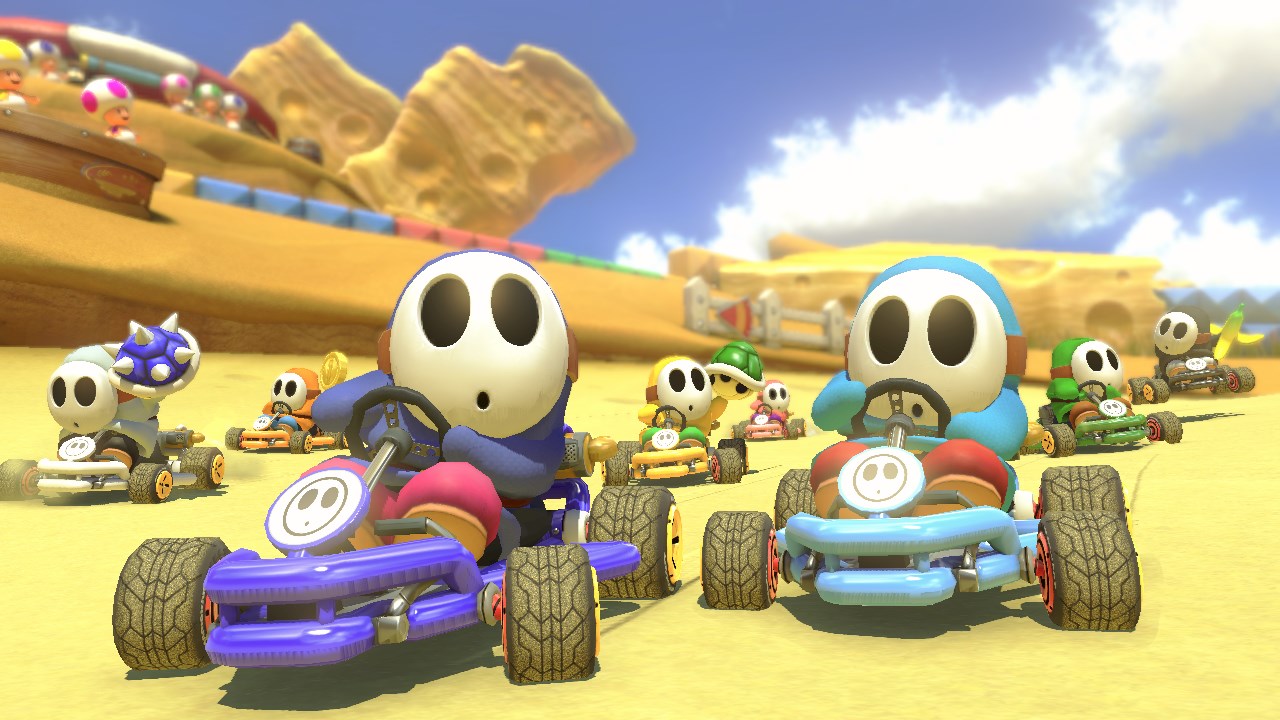
Credit: Nintendo
Many of the players in the group are from my home state of Florida, but we’ve also got members from other states, the U.K., and China, so many of us are experiencing different stages of the pandemic. Since the U.S. response has been so fragmented and confusing, the American players have lived out vastly different situations, too.
Most of the Corona Cup members are in our mid-to-late 30s, and there simply isn’t much time for gaming in our regular day-to-day lives. For many of us, that’s now changed. (I know I’ve logged more gaming hours these past few weeks than I did during the Christmas break of ‘93, when I got a Super Nintendo and Final Fantasy VI.) Almost every day, at least four or five of us will get together for a grand prix or two. Call it one of the small silver linings of a global pandemic.
Aaron Bird, who works as a creative director, is a New Zealand native and current resident of Qingdao, a coastal metropolis in China’s Shandong province. The city’s first confirmed case of COVID-19 came on January 23rd. Bird, who mains as Toad in our group, is the one who actually inspired me to first purchase a Switch (he showed me 10 minutes of Breath of the Wild and I was sold). When I lived in Qingdao, we raced hundreds of times, but I can probably count the number of times I’ve beaten him on one hand. Mercifully, our time zone difference means we don’t get many chances to race together.
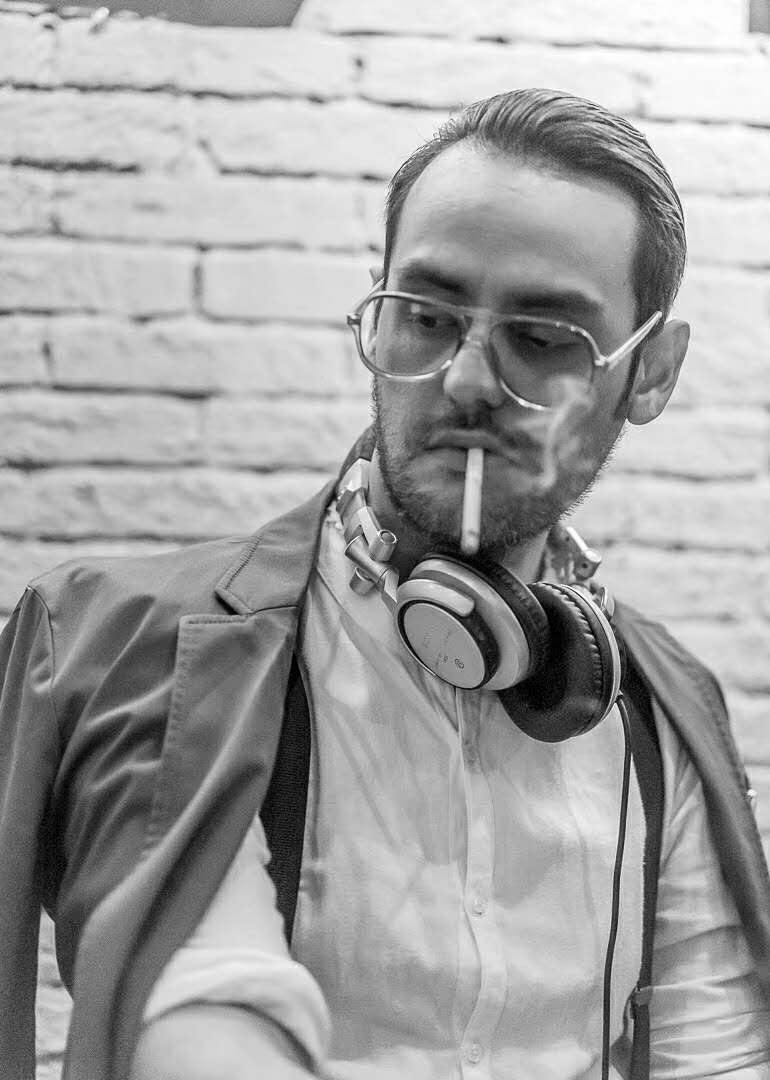
Living in China, Bird has witnessed the pandemic unfold from the beginning. “Once rumors of the virus started spreading on Weibo and other Chinese social media early in the year, it was hard to know which news was legitimate, and if it would reach as far as where I live, in Qingdao,” he said. The city lies on China’s east coast, about 750 miles from where the virus originated in Wuhan.
Bird prepares for a “self-quarantine” every year before the Chinese New Year holidays, since many shops close down and local friends leave on vacation or to visit family. “It was during this time that it became very evident that the threat was legitimate, and my best course of action was to stay inside, binge media, and continue my hibernation well past the intended week or so that I’d normally allocate,” he told me.
The situation in China during the beginning of the outbreak “is and will be a subject of discussion for some time,” Bird said, but he also feels that once it was clear the virus couldn’t be isolated, the response was swift, with most citizens willing to comply with quarantine rules. “Qingdao wasn’t hit as bad as other places, and since I was not interested in traveling during the peak of it, I personally did not see the draconian measures that likely took place closer to ground zero. Hard to say, since transparency is a foreign concept here.”
He also feels there is widespread general anxiety of what the future holds. “I had solidified plans for my family to come visit me in China in March. We had to decide in the beginning of the year to scrap all that. Back then, we all thought this would only affect China… Oh, how little did we know.”
About 8,000 miles away from Shandong province and roughly halfway down Florida’s west coast is Rachel Meza, a state lending assistant for New York and Florida. She’s an old friend of mine from high school in St. Petersburg, where she still lives today. Florida’s first confirmed case of COVID-19 was on March 1st.
We’ve stayed in touch over the years, and I invited her into the group at its inception. She’s turned out to be a contender, capable of beating anyone when she’s on her game as Black Yoshi. At the time of our exchange, the state of Florida had not yet implemented any statewide lockdown—Governor Ron DeSantis finally issued “stay-at-home” guidelines on Wednesday, April 1st, after all the spring breakers and cruise ships had gone home. More recently, he’s incorrectly claimed that people under 25 don’t die from the virus.
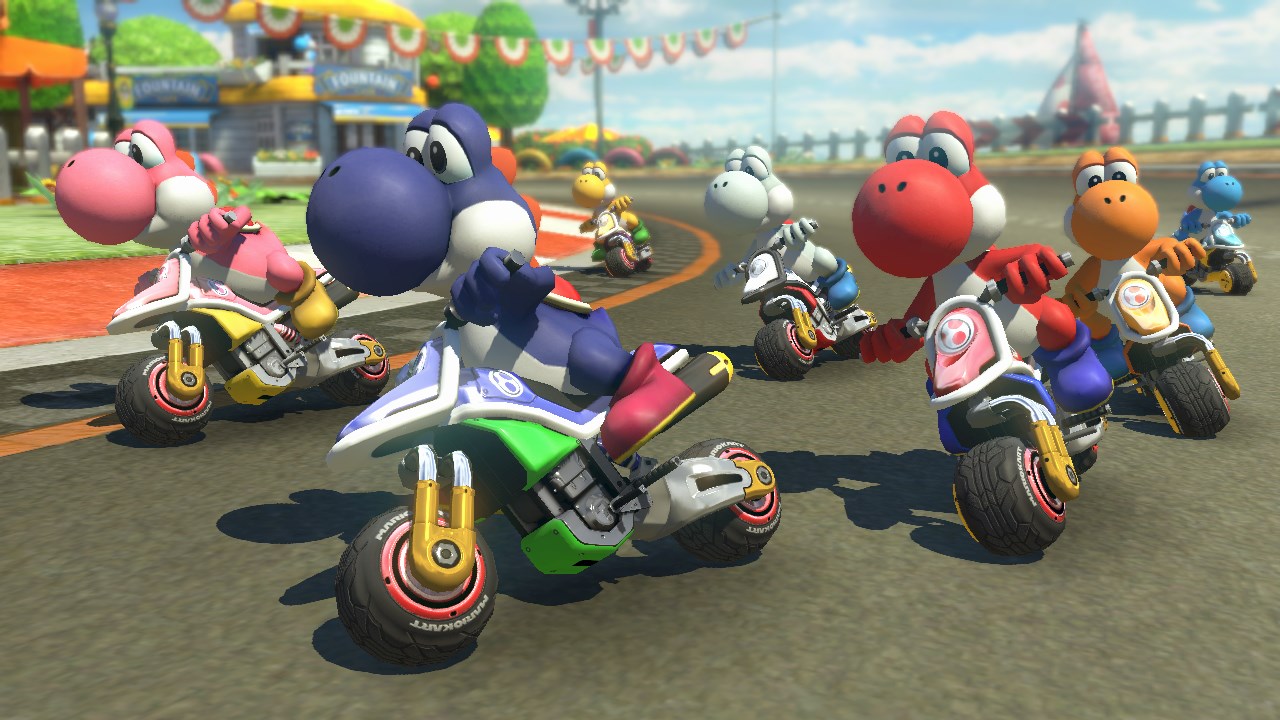
“I’ve been working at home for two weeks,” Meza told me when we spoke. “It feels like a month.” She misses her office chair, opportunities to collaborate face-to-face with coworkers, and the trips she used to take for the job. “Now, I am strictly working from my home, day after day, so I feel isolated.” Still, she said, there are some advantages: “Fewer human distractions, spending the day with my dog, taking more time to be outside, no make-up or uncomfortable shoes needed, eating healthier meals at home instead of lunches out or skipping all together… and frankly, as an introvert, mostly I enjoy it.”

Meza’s sense is that a lot of Floridians haven’t been behaving very responsibly, but that may partly be because messaging has been so fragmented and mixed. “People have been panic buying, and they’ve disregarded many safety measures, which is troubling. They are still going to beaches, parties,” she said. “After my first week spent at home, I went to get a haircut—which in retrospect I feel shitty about.”
Even for a homebody, she’s beginning to get a little stir crazy. Several big concerts have been canceled that she and her husband were looking forward to, including Primus and Tool. “I understand I am double-fortunate to not only have the capability to work from home, but also my business—banking—is considered ‘essential.’ My husband has also been considered essential and is able to keep working, although he’s working outside the home, and so is at risk… and by extension so am I.”
As far as the official response, Meza believes that the states are doing the best they can, but that “much of it is too little, too late.” Her county received a “safer-at-home” order, but in practice it turned out to be more of a toothless suggestion—Meza told me at the time it felt “half-assed.”
“I personally don’t care for politics under normal circumstances and things like ‘Rona bring out some of the worst nutbags. Just give me scientists to listen to, please,” she said. Like many of us, she’s also found herself disagreeing with family members. “My family is extremely conservative leaning, and not appreciating the ‘loss of our freedoms’—I’m still doing mental gymnastics on this.”
A mere 500 miles north of St. Petersburg is Corona Cup co-founder Ryan Harris, who works in digital advertising by day and hosts pub trivia by night in Atlanta’s neighborhood of East Atlanta Village.
On the racetrack he and I are fairly evenly matched, and I’ve raced him the most out of anyone in the group, so his favorite character, Black Shy Guy, is a familiar sight. “I’ve always loved the silly simplicity of the Shy Guy design,” he told me. “Also, Black Shy Guy looks like he judges your record collection.”
Harris and his wife have been working from home for about three weeks, and the bars and restaurants have been closed for two. The first confirmed COVID-19 case in Georgia was on March 2nd, and Atlanta’s mayor enacted a “stay-at-home” order for the city March 23rd.

“I haven’t left home except for quick runs to the grocery store, so I have no idea how it’s being enforced. I don’t really understand how the ‘shelter-in-place’ order is any different from the previous mandate that closed all the bars, restaurants, gyms, other than that it sounds spookier,” Harris told me.
As far as daily life, Harris has found it a bit of a challenge to adapt to working at home in a small space with his wife. “We don’t really have a home office set-up for either of us, so we mostly end up rotating uncomfortable, awkward seating arrangements,” he said.
More pressingly, Harris has lost a quarter of his monthly income—hosting pub quizzes requires bars that are open. “I’m lucky to still have an office job that I’m able to do remotely, but that 25 percent hit stung,” he said. “I feel bad complaining about it, though, because my friends who work at the bar full time are all now out of work.”
For Harris, it’s not so much the money as the socializing that he’ll miss. “Thankfully my main crew of drinking buddies has been having daily meetups, either to game and shit talk or just FaceTime each other while we take shots,” he said.
Harris was skeptical of the government response when we spoke, characterizing it as “fucking clown shoes.” On April 1st, Georgia Governor Brian Kemp indicated that the ability of the virus to be spread by people who are asymptomatic was new information. In reality, it’s been public knowledge for months. “Thankfully the mayor of Atlanta has been taking matters more seriously than our ignorant governor, but that doesn’t provide a whole lot of comfort,” Harris said. “If elected officials like Kemp are acting like they only just heard how the virus spreads, there must be a large part of the population equally in the dark—and that’s scary.”
Harris knows his family has been lucky to have flexible employers that have made working from home as easy as possible. And he thinks most of his friends are doing the right thing and taking this all seriously—but not all of them.
“It kills me to keep seeing Instagram stories of house parties and cookouts,” he said.
“I am sick of hearing, ‘We’re not in the at-risk population,’ or, ‘If we aren’t scared, it can’t beat us’—bullshit. It’s a pandemic, not Pennywise the clown. And by the way, being a chain-smoking, alcoholic, out of shape 30 something with no health insurance is pretty fucking ‘at-risk.’”
Some 4,000 miles across the pond from Atlanta is Bobby Pembleton, who lives in Scotland with his wife, Claire, and their 2-year-old daughter, Freya. I met the couple in Daejeon, Korea, in 2015. Back then we were all teachers, and today Pembleton is the Enterprise Officer at Edinburgh Innovations, a department at the University of Edinburgh that manages the school’s commercialization activities.
It was only a few weeks back that I convinced Pembleton Mario Kart 8 Deluxe and Switch Online were necessary purchases for surviving quarantine, so he’s a new arrival to the Corona Cup.

While he’s five hours ahead of most of us and still learning the ropes of this latest edition, I have high hopes for his progress, and he’s already got a favorite character—Black Yoshi, “because dinosaurs are cool”—although he did complain that he had to pay for any of it. “I live in the U.K., and during a quarantine I think Mario Kart should be a publicly funded utility,” he said.
Pembleton hasn’t “recklessly” gone out since the week of March 9th, when he had a week-long festival of activities and student workshops planned. “It was a real capstone achievement of my work this semester, and I had a bit of tunnel vision on keeping things on track that week, despite the fact that I was increasingly aware that things were going to be Different Now,” he said.
After his final event on March 12th, Pembleton went to his traditional celebratory “well done to me” pub, The Blue Blazer, to have a quiet pint or two and relax. He noticed there were fewer people than usual, and the mood was starting to change—that’s when he took some time to really catch up on the news.
“As I was walking to the train station, I realized that the defining event of my lifetime was happening, and I quickly got home to my family. I kept my daughter home from nursery that next day (I already had the Friday booked as a day off) and it sunk in even more.” Since then, he’s only left his house to buy groceries once a week and to exercise nearby.
On March 26th, the U.K. went on lockdown, something Pembleton feels happened a bit slower than most people would have liked. “I think the government realized around the same time that I did that this was really bad, but decided to phase in the big lifestyle changes a day at a time,” he said. “One day people were advising you to work from home, the next it was less of a choice.” First gatherings of over 500 were cancelled, then smaller events, then the restaurants closed, and then finally the lockdown arrived.
“It is being increasingly strictly enforced, but overall most people are being very respectful. We have one Queen-approved walk, run, or cycle per day in which we need to stay at least 2 meters apart from people,” he said, noting that the side-effects of lockdown have been occasionally jarring. “Couples who didn’t live with each other suddenly do. We aren’t allowed to visit my wife’s unwell elderly mum. My wife and I are both trying to work from home while caring for a 2-year-old, which is problematic.”
Still, while juggling childcare and his job have been challenging, Pembelton said that his employer has been understanding and he’s been able to find ways to accomplish his work tasks digitally. Plus, the government has offered an additional safety net. “If we aren’t able to work, the U.K. government will pay 80 percent of our wages and our jobs will be guaranteed to come back to if/when things get better,” he said.
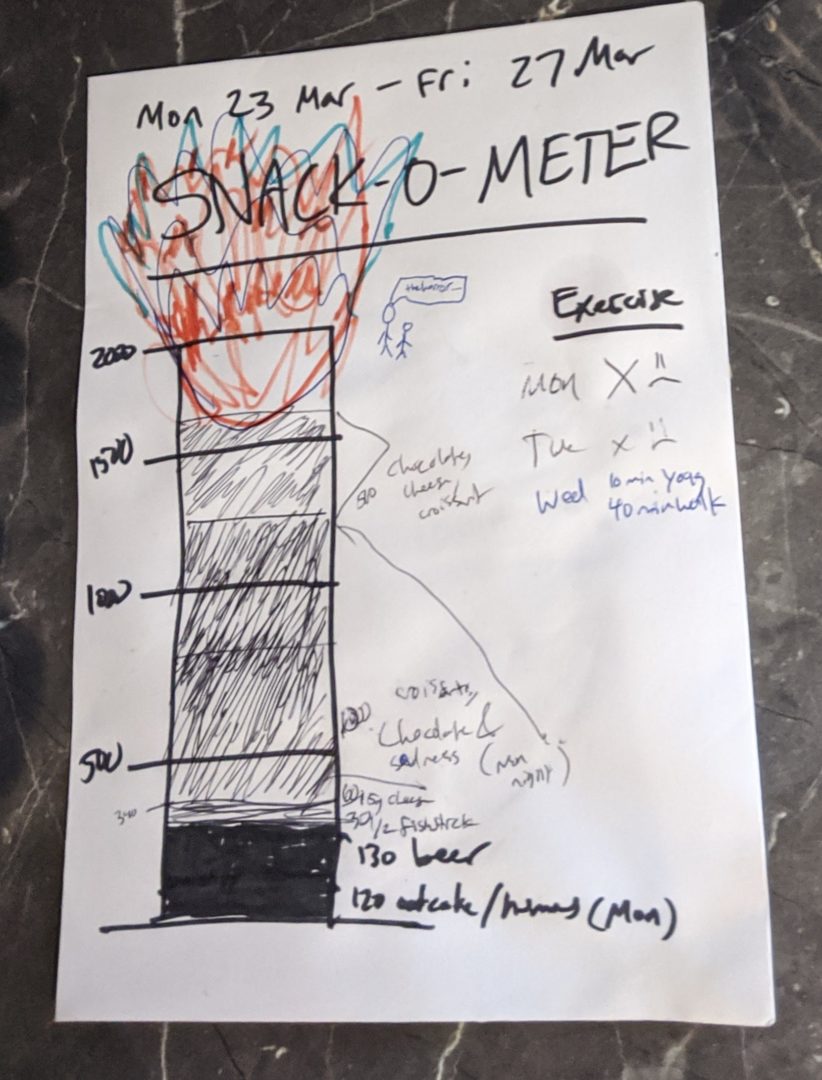
In fact, the government’s response has left Pembleton somewhat conflicted. “I’m on the fence about this—I am not a fan of this conservative government, but I count my lucky stars I’m not back home in the U.S.A. It’s being taken very seriously here. It’s a bit surreal really. Some of the most modern, progressive, socialist policies are being rapidly rolled out by one of the most conservative governments in recent history,” he said.
One aspect of lockdown that’s been less successful for Pendelton is his diet. He’d been counting calories and trying to lose weight before it all started but since has given up. “I tried to make a little chart of a ‘Snack-o-Meter’ in order to at least count my snacking calories. I tend to eat perfectly healthy meals, then ruin it all at 10 p.m. with 1,000 calories of fancy French cheese.” he said. “Anyway, the Snack-O-Meter failed miserably.”
While it’s still uncertain how the pandemic will unfold in the weeks and months ahead, some countries now appear to be emerging from the worst of it, able to restart aspects of normal life after successfully flattening their curves.
Living in China, Bird has endured quarantine longer than the rest of us, and has also witnessed the first stages of life after what is likely (but not certainly) the most severe phase of the pandemic. He told me he’s lost track of how many days he’s slumbered—with no routine acting as an anchor, days and weeks blurred together—but eventually “week by week, more businesses were allowed to open, and I eventually ventured out to meet some friends for a Smash Bros. session at a local bar.” Currently, only the schools in Qingdao are still closed, likely until at least May.
“Many businesses have reopened, but others are still closed or couldn’t survive long enough to make it through the quarantine, especially in the food and beverage and tourism industries,” Bird said. He was fortunate enough to have a big design project in Australia that he managed to complete just before the shutdown, though a bar and restaurant project he’s involved in has suffered financial losses.
He told me everyone has been itching to reemerge into social and public settings, but even now they’re doing so cautiously, and much less frequently than before the outbreak. Not surprisingly, China still has some of the strictest measures of any nation not on lockdown. “To enter almost any establishment one must wear a mask, have their temperature checked, and scan a QR code that logs their name, time of entry, and phone number.”
While Mario Kart is what’s brought our group together, gaming in general has become a big part of how we’re each individually dealing with the pandemic.
Rachel Meza told me she’s played a lot of Mortal Kombat and Legend of Zelda, as well as board games like Yahtzee!, Scrabble, and chess.
Ryan Harris, perhaps ironically, has been enjoying the co-op zombie shooter World War Z. “I play it with friends from the pub—even if the subject matter might be a bit uncomfortably on the nose,” he said. “The level on the cruise ship… Too soon, man.”
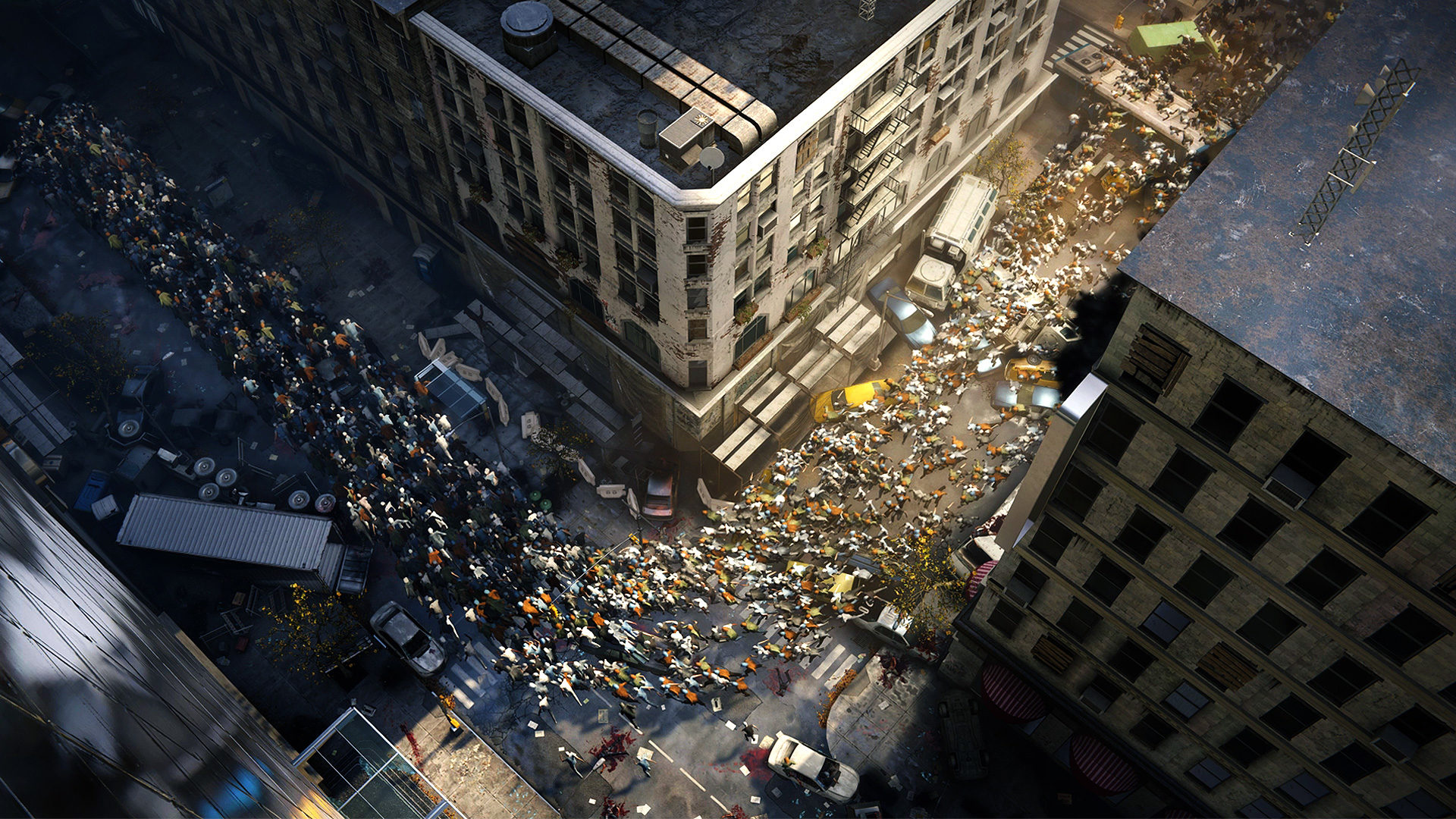
Credit: Mad Dog Games
Aaron Bird has used the time to catch up on a stack of games in his PS4 library, like Deus Ex: Mankind Divided and Prey’s Mooncrash DLC, as well as a new campaign in The Last of Us with his wife. He’s also finally found the time to play The Witcher 3: “a game I had been putting off for years because I knew how much time I’d waste on it. Not a problem now though.”
Bobby Pembleton has rediscovered an old favorite by picking up Civilization VI for the Switch. A longtime fan, he’s logged thousands of hours on every version of Civilization over the past 29 years. “I downloaded it again soon after we began self-isolating,” he told me. “I thought I’d look back and just refresh myself on how the whole civilization thing went down, one more time, before it all crumbled away.”
Every week, Peru tightens its COVID-19 regulations a little more, and my world gets a bit smaller. I can’t walk as far, or go out as late, or leave my apartment at all four days out of the week. Literally as I write this paragraph I’ve learned that nobody in Peru can go outside this Thursday or Friday, and that grocery stores will no longer sell alcoholic beverages. I keep obsessively checking how many confirmed cases are in Peru, for all that really tells me.
I don’t know what new rule the Peruvian government is going to announce tomorrow morning. I do know that someone in the Corona Cup will want to hit Moo Moo Meadows tonight for a grudge match. As many of our lives continue to shrink in scope and become increasingly unrecognizable, Mario Kart helps instill some sense of normalcy. It reminds us the world isn’t really so small and limited, not all of the time. It just feels that way right now.
As Meza said, “Mario Kart brings people together, no matter your beliefs, social standing, or politics. People who haven’t seen or heard from each other in years can play online together, forget the rest of the world and be right there with each other.
“We are all friends in the Mario Kart universe—unless you are Lakitu. Then fuck you.”
Header image credit: Nintendo
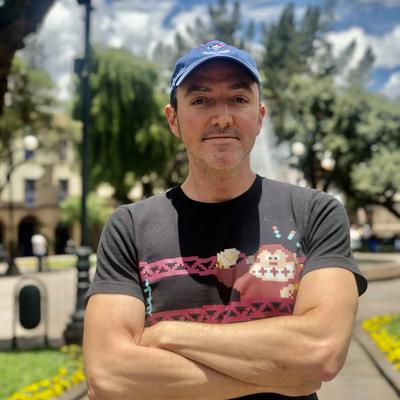
Stephen K. Hirst is a freelance writer living in Cusco, Peru. He likes video games, basketball, Buffalo wings, and comics. His work has appeared in Slate, Rolling Stone, Bedford & Bowery, VICE News, The Huffington Post, and Salon. He will ruin you at Twisted Metal 2.
